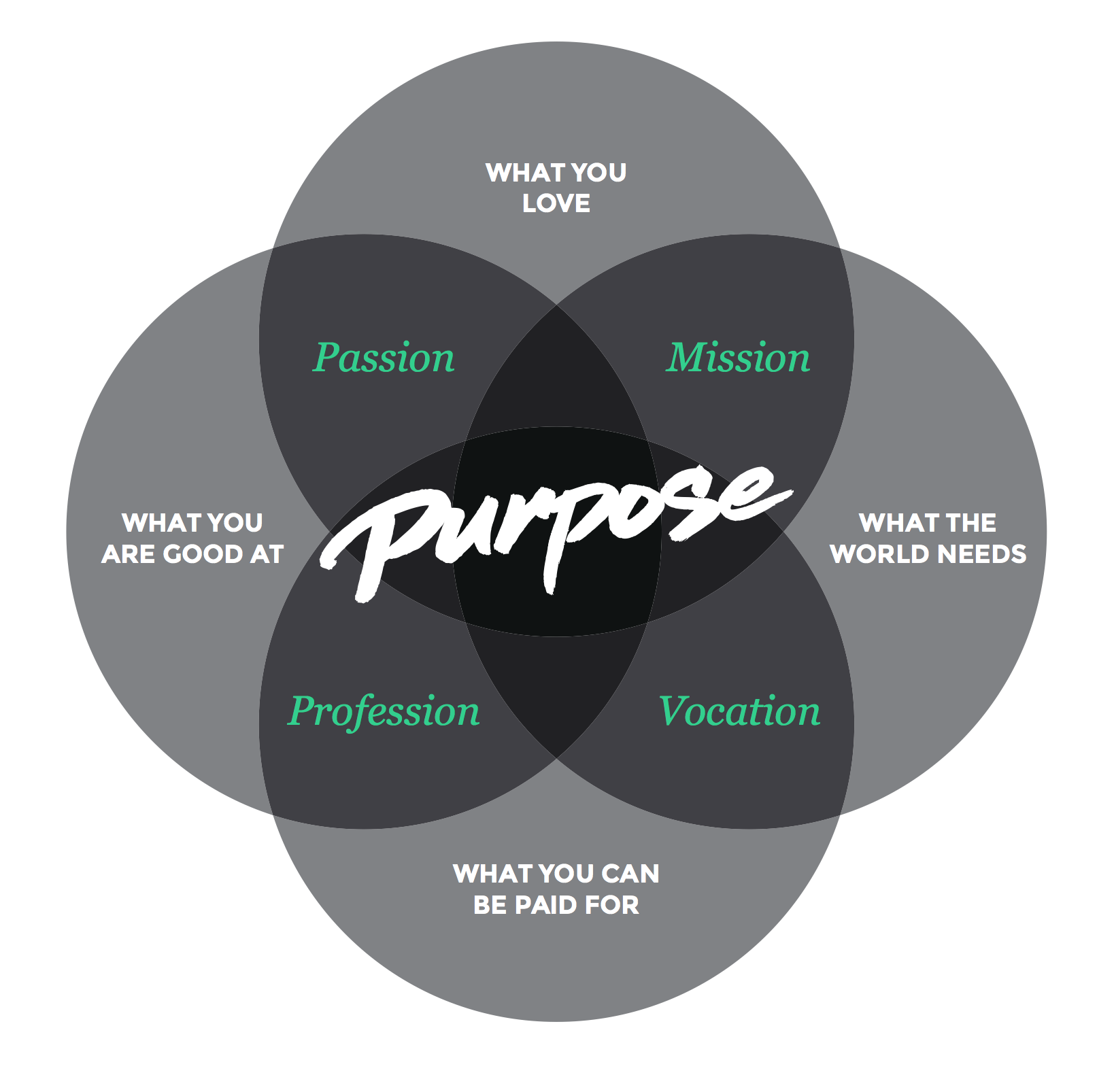
Let?s get the obvious out of the way. I?m a Millennial. At the core, I buy into Sigmund Freud?s belief that:
?Love and work are the cornerstones of humanness.?
That these are the only things that matter. Call it entitled. Call it narcissistic. Call it whatever you please. If you don?t at least partially buy into this view of the world, I urge you to stop reading now. The thesis of this entire post stems from this belief.
It?s an ode to any 20-something in the midst of an existential crisis that believes this, too, but can?t seem to put it into practice.
This is for my countless friends that hate what they?re doing. Hate their jobs. Hate the people. Hate the company politics.
That have been experiencing anxiety. Panic attacks. Existential crises. Depression.
It?s for those stuck in the loop of the Sunday Scarries, Mad Mondays, Terrible Tuesdays, WTF Wednesdays, Thoughtless Thursdays, Finally Fridays, and Super Saturdays.
For those feeling lost, unfulfilled, unmotivated, and exhausted. Daydreaming about starting their ?own thing.? Wondering why they haven?t dropped out yet. Going through the motions. Sitting on the sidelines of life.
Whoever you are, in whatever version of this predicament, this is for you.
Step #1: Recognize And Combat The Forces At Play.
There is something that?s made you believe you shouldn?t try to change. That you shouldn?t do something new. That?s kept you from switching paths already. What is it?
Inertia.
Being who you are, doing what you?re doing already, is easy. Very easy. You have learned habits and ingrained patterns of thinking and behaving that drive almost everything you do. Whether you like your job or not, it?s easy to wake up and keep going.
And while it?s easy to imagine what it would be like once you?ve changed, it?s cognitively exhausting to think about putting in the work to change. Pushing yourself to new limits. Applying to new jobs. Sidelining your ego. Breaking habits. Building a new network. Choosing a non-traditional path. Doing the inner work. Jumping in.
Henry Cloud wrote,
?We change our behavior when the pain of staying the same becomes greater than the pain of changing.?
We stay in jobs when they?re comfortable. But just because something?s comfortable, doesn?t mean it?s serving you.
A good test for deciding whether to change is to ask yourself the following:
- Is this engagement something I enjoy and/or am proud to be a part of?
- Is this engagement getting me closer to doing something I?m proud of or will enjoy? (i.e. helping you build up the you the money, skills, and relationships you?ll need.)
If the answer to both questions is ?no,? then you should seriously consider quitting, turning in a new direction, or coming up with a new plan.
Inertia is a life killer. It is the result of prioritizing comfort over growth. And to stop growing is to die.
Justification.
I genuinely convinced myself on multiple occasions at my last engagement:
- ?The long-term payout could be huge.?
- ?If I can?t commit myself to this, I won?t be able to commit myself to anything.?
- ?Everyone thinks I?m good at this.?
- ?My resume can?t have a gap on it.?
All partially true thoughts. All ego-centric. All hard to let go of.
Author, Tim Ferriss, in his bestselling book, The Four Hour Work Week, calls this out for what it is: ?fear disguised as optimism.? He goes on to write:
?Pure hell forces action, but anything less can be endured with enough clever rationalization.?
The mind is a tricky machine. There are thousands of potential rationalizations and justifications for why you should stay ? in the unfulfilling job or unhealthy relationship ? and the mind is prepared to use them all against you.
Because the mind favors inertia. It doesn?t want to change. And therefore, you can convince yourself of absolutely anything.
And when you listen, you become confined to this state of non-commitment disguised as poise, dedication, and honorable sacrifice.
Pay attention to what you are justifying ? to yourself and others ? about your current situation. If you feel compelled to justify anything, it means you don?t believe it. It means you?re afraid of the alternative or the truth. Work through that and you will find what you truly believe.
Push vs. Pull.
There is a lot of talk lately about ?hustle? and ?hard work? thanks be to Gary Vaynerchuk and the rest of the ?thought leader? crew. Working hard is a key element in success, certainly. As the saying goes:
?Hard work beats talent when talent doesn?t work hard.?
But it?s not the only element.
In fact, it?s preceded by something much more important.
What?s made Gary Vaynerchuk successful is that he?s doing what he loves. He?s aligned. He?s operating within his natural set of talents and abilities. He?s the adult-version of his baseball card-selling self. He loves the game.
He?s working hard, but he isn?t forcing it. He isn?t pushing himself to work hard so much as he?s being pulled to.
If you have to drag yourself out of bed in the morning, complain all the way to the office, and spend 18 hours feeling exhausted, miserable, and uninspired, then you are doing it wrong.
That?s slaving for a paycheck. It?s honorable and obligatory to some extent, sure. But if you want complete fulfillment and massive success, you need to switch strategies. Stop pushing, and search for what pulls you.
The hard work, the ethic, and the drive will come naturally when you stop resisting what?s pulling you.
Step #2: Pay Attention ? Get To Know Yourself Better.
No one else can tell when you?re actually ?all in.? No one else can tell you what you should be, do, or have. No one else can tell you when it?s the right time to start, stop, or change. That?s your job.
Only you can know when you?re putting in 80% effort.
When you?re in something ? a job, a game, relationship, or conversation ? you are either fully present and committed or you aren?t. This is binary.
You are the only one who knows what lingering doubts, regrets, and suspicions you have. You are the only one who knows what you?re holding back or what you?re reserving for a better opportunity.
This has nothing to do with the results you?re seeing or how people perceive you. You can kill yourself for something and still blow it. You can half-ass something and stroll right through.
You might be really good at conversational masturbation. You may have a really good performance on the field after a night of partying. You might be really good at crunching numbers. You might be really good at making your partner believe you love them.
But only you know the truth. Did you put every ounce of effort and energy into that presentation? Did you bring your A game? Did you leave it all on the field? Do you have wandering eyes? Do you have doubts?
Are you really in this or are you out?
It feels crappy to be less than who you are capable of being and to do less than what you are capable of doing.
Life is too short to only go in 80%.
Aren?t you the least bit curious what would happen if you put 100% of yourself into something?
It?s up to you to find what?s worth the extra 20%.
You have a unique purpose.
I have a lot of qualms with the education system, but perhaps the greatest is that we push students to choose majors and career paths based on expected future value calculations.
Business is more valuable than psychology. Engineering is more valuable than business. Medicine is more valuable than engineering.
Pick something that will ?set you up.? Blah. Blah. Blah.
There are lucrative opportunities down any path. If you can fill a big need, you can make big money. Simple as that.
You?ve probably seen this diagram before. Purpose is found at the intersection of what you love doing, what the world needs, what you are good at, and what pays.
 https://carolyntate.co/
https://carolyntate.co/
I believe when you are not obligated to a marital partner or a child, you are obligated to this Venn Diagram.
The world is better off when you are self-aware and deploying against that self-awareness. When you are doing what makes you feel alive. When you are feeling fulfilled. And you are better off when you?re getting paid for it.
The highest service you can do for humanity is to find and do what makes you feel alive. You will work harder, and therefore add more value that way. You will be happier, and therefore raise others up.
Be patient. Try as many things as possible. Travel. Take cheap internships. Figure out what you must do, not what your mentors, parents, teachers, and peers have told you you should do.
Don?t go into insurance sales for the money and misery. Don?t walk the path of the starving artist.
Find the intersection. Be a thriving artist.
You have natural talents, inclinations, and filters. Find them.
Meg Jay, Ph.D, calls these our:
?UNTHOUGHT KNOWNS.?
The things that are already inside of you that you once actively understood but forgot about yourself. The things that the world stripped from you. The things you enjoy doing. That you are good at. That add value to the world. That others praise you for.
The spark to initiate the commitment. Something worth building upon. A runner?s high or a young lover?s buzz. The catalyst.
It?s like what Steve Jobs said in his famous Stanford Commencement speech:
?Have the courage to follow your heart and intuition. They somehow already know what you truly want to become. Everything else is secondary.?
To find your ?unthought knowns,? you have to create a clear channel. Your heart and intuition cannot ?speak up? if you don?t create a space for them to.
You have to provide a blank canvas.
The problem is, by this point in our lives, most of us are working with a canvas that?s already full. It has all of our preconceived notions of what we should be. All the years of people telling you what?s practical and profitable.
Scrape it down and you will discover your essence.

Start by asking:
- What do I do that no one pays me for?
- What did I like to do as a child?
- What do I do just for the sake of enjoyment?
- How do I process the world around me?
When I asked those questions, my thing, for example, became abundantly clear. It had been staring me in the face since I was probably a freshman in high school, maybe even before that.
- I have memories from middle school in being applauded for it.
- I even received honors in college for doing it well.
- I even created a daily habit of doing it in 2016.
- I was paid for it a few times in (and right after) college.
- I?ve had people over the years tell me ? you should do that thing as a job.
- It?s the thing I do when I have a little extra time on my hands.
And it wasn?t until the beginning of 2018, at the age of 25, that I even realized I could monetize in a massive way. That I could really make an impact with it. That it was my gift. It just hit me. And just like that, everything shifted.
You have something in you like that, too.
Step #3: Take Some Action.
What?s often missed with ?The Law of Attraction? is that you have to line your thoughts, words, and actions. I don?t deny that thought is a powerful tool, but it is the weakest tool between the triad. It is only the start; it is not the end.
Action, on the other hand, is the most powerful.
Sometimes you have to ?drop out? to drop in.
There is all of this talk about starting a ?side hustle? before leaving your corporate job. Getting your toes wet. Identifying the next platform to jump to. Testing the efficacy of your business plan.
I like it. I think it?s practical, smart, and effective. I wish I could have done that.
But I couldn’t.
If you have the type of personality or identity structure that requires you go ?all in? on every venture, you will likely find yourself at a crossroads eventually. ?The crossroads of should and must,? as author Elle Luna calls it.
A place where you have to make a decision because the two paths you?re headed down are mutually exclusive. You are trying to find time for long-term creative thinking, but you?re on the high-powered executive track. You are trying to pursue screenwriting, but you?re acting in commercials full time.
If you have the energy and the ability to force separation between your paying gig and your purpose, power to you. If you are highly risk-averse or financially conservative, own that. Start a side hustle.

But don?t wait on attacking your dreams just because you believe it has to start as a side hustle. Sometimes in life, we have to burn the bridges backwards to secure any chance of moving forwards.
To go against all of the advice you?ve heard from career counselors and mentors. To intentionally create space. To do what you should have done at 18. To hope that you aren?t delusional. To soul search and figure out what may be worthy of commitment. A craft. A mission. A business.
And in that space you carve out, you may just find it. The thing that you are meant to commit yourself to. That you are willing to assume risk for. That you are meant to do with your days, weeks, months, and years. That makes you want to publicly fail, so you can get better.
Find something to go a mile deep in.
As Matthew McConaughey?s character in True Detective said,
?Life?s barely long enough to get good at one thing. So be careful what you get good at.?
You?re becoming what you?re spending your time on and who you?re spending it with. The podcasts you listen to. The books you read. The TV shows you watch. What?s on your Instagram feed. Your friends. Your coworkers. How you spend your evenings.
Seeing results and experiencing fulfillment are a matter of making a deep commitment to something bigger than the minutia.
You could become a fundamental Christian. You could become the CEO of a Fortune 500 company. An engineer. A Buddhist. A daycare worker. An entrepreneur. A monk. A public defender. A law enforcement officer. An archaeologist. An activist. A multi-planetary human being. A tattoo artist.
But you can?t be all of those things.
If you go an inch deep in ten areas, you are likely to be pretty mediocre in all ten. If you go a foot deep in one area, you will not only have built a valuable skill and knowledge base, you will be a magnet for those other nine things anyways.
Becoming a world-class anything will attract teaching, speaking, and writing opportunities. It will open doors for collaborations you can?t even dream of.
The key is this: start with one thing. Wake up each day and be the best you can be. Stay committed no matter how many escape routes you see.
The dividends paid on that kind of commitment are huge.
Take action on the grand strategy.
Grand strategy, according to military strategist, Liddell Hart, is the way in which resources should be banded together to reach some political objective in war.
Often we are hyper-focused on winning this battle, forgetting about why we are fighting this war in the first place.
You have to keep the overarching objective in mind. A goal. An endgame. An ideal day in mind. Something to work for. Something you want. Someone you want to be.
When you have a clear vision of what you want to become, what you want to do, and what you want to have, you can take steps towards that goal without worrying too much about the small losses. The additional anxieties and pressures fall off. The macro becomes more important than the micro.
You are less invested and more detached from the short-term outcomes. You can put up with a little grunt work. Long hours. Crappy shifts. And the work no one else wants to do.
And that?s how you win. That?s how you acquire success and become fulfilled.
Take action. Be persistent. Play the long game.
Now? the end is not yet written.
I could be wrong. I could be just another Millennial preaching about finding purpose in the world. About doing good. About making stuff that matters.
I could experience financial destruction in a recession. I could fail to become as great as I want to at this craft. I could suffer many failures on the path.
But the science is unequivocal. Economists and philosophers agree. There is no better time to act than right now. No better time to quit. No better time to start. No better time to take the first step on the path to becoming who you want to become.
As Meg Jay, Ph.D, writes:
?The post-twenty something brain is still plastic, of course, but the opportunity is that never again in our lifetime will the brain offer up countless new connections and see what we make of them. Never again will we be so quick to learn new things. Never again will it be so easy to become the people we hope to be. The risk is that we may not act now.?


